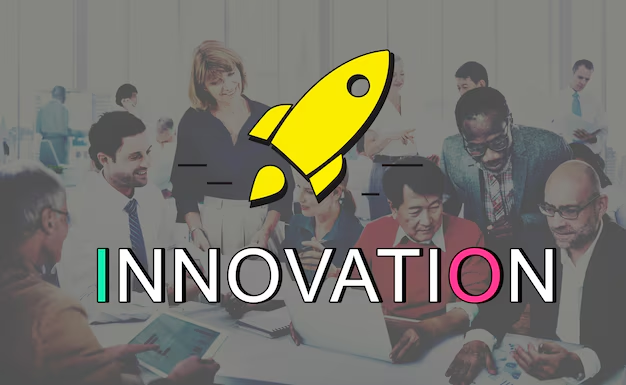Innovation at the Core: How Entrepreneurs Drive Change in the Market
Entrepreneurs are often at the forefront of market change, driving innovation that shapes industries, disrupts traditional business models, and introduces new solutions to age-old problems. They not only recognize gaps in existing markets but also create entirely new categories, pushing boundaries and challenging the status quo. Here’s a look at how entrepreneurs fuel innovation and spark transformation in the marketplace.
1. Identifying Unmet Needs and Opportunities
Entrepreneurs have a keen sense for spotting gaps in the market—areas where customers’ needs are not being fully met, or where existing solutions fall short. By identifying these pain points, they can develop innovative products or services that fill these voids. For instance, companies like Uber and Airbnb revolutionized transportation and hospitality by identifying inefficiencies in traditional systems and offering simpler, more accessible alternatives.
2. Leveraging Technology for Disruption
Technology is often a key driver of innovation, and entrepreneurs are quick to embrace new tools, platforms, and processes to create disruptive solutions. By integrating emerging technologies like artificial intelligence (AI), blockchain, or the Internet of Things (IoT) into their offerings, entrepreneurs are not just keeping pace with the changing market—they are often leading it. For example, tech startups in fields like fintech, healthtech, and edtech have harnessed new technologies to provide more efficient, user-friendly solutions to everyday problems.
3. Agility and Speed to Market
One of the core strengths of entrepreneurs is their ability to act quickly. Unlike large corporations, which often face bureaucracy and rigid structures, entrepreneurs can move fast to develop and deploy new ideas. This agility allows them to test the market, gather feedback, and refine their offerings rapidly. Companies like Tesla and SpaceX have used this flexibility to disrupt entire industries, from automotive to space exploration, often introducing breakthroughs that larger, more established players have been slow to adopt.
4. Challenging Conventional Business Models
Entrepreneurs often question traditional business models, seeking out ways to create more efficient, customer-centric, or cost-effective approaches. A great example of this is the rise of the subscription economy, which has disrupted industries like media (Netflix), software (SaaS platforms), and even retail (Dollar Shave Club). These innovative business models often focus on providing customers with more value, convenience, and flexibility.
5. Creating New Markets and Ecosystems
Sometimes, entrepreneurs don’t just innovate within existing markets—they create entirely new ones. Consider the rise of the smartphone market. While mobile phones were already in existence, entrepreneurs like Steve Jobs with the iPhone revolutionized how people interact with technology, creating an entirely new ecosystem of apps, services, and industries that didn’t exist before. Similarly, the shift to remote work has spurred the development of entirely new solutions for collaboration, communication, and virtual services.
6. Fostering a Culture of Innovation
Entrepreneurs often lead by example, creating workplaces where innovation is encouraged and failure is seen as a stepping stone to success. By fostering a culture of experimentation, these leaders inspire their teams to think creatively and take risks. This approach not only drives the development of breakthrough products and services but also cultivates an environment where continuous improvement is at the core of the business.
7. Sustainability and Social Impact
Increasingly, entrepreneurs are driving innovation with a focus on sustainability and social good. Social entrepreneurship has gained traction, with entrepreneurs developing solutions that address pressing global challenges like climate change, inequality, and access to education and healthcare. For example, companies like Beyond Meat and Tesla not only innovate in their respective industries but also align their business models with a broader mission to make a positive impact on the planet and society.
8. Leveraging Data and Analytics
In the age of big data, entrepreneurs have the ability to leverage vast amounts of information to inform decision-making, improve customer experiences, and develop new products. By using data analytics, entrepreneurs can gain insights into customer behavior, market trends, and operational inefficiencies. This enables them to make smarter, more informed decisions that drive continuous innovation and keep them ahead of competitors.
Conclusion
Entrepreneurs are often the catalyst for change in the market. Their ability to identify opportunities, embrace new technologies, challenge traditional business models, and foster a culture of innovation allows them to drive progress and shape the future. Through their ingenuity, agility, and bold vision, they create new markets, solve critical problems, and bring about lasting change that has a ripple effect throughout the economy and society at large. As we look to the future, entrepreneurs will continue to be the engines of innovation that fuel market evolution and societal progress.

